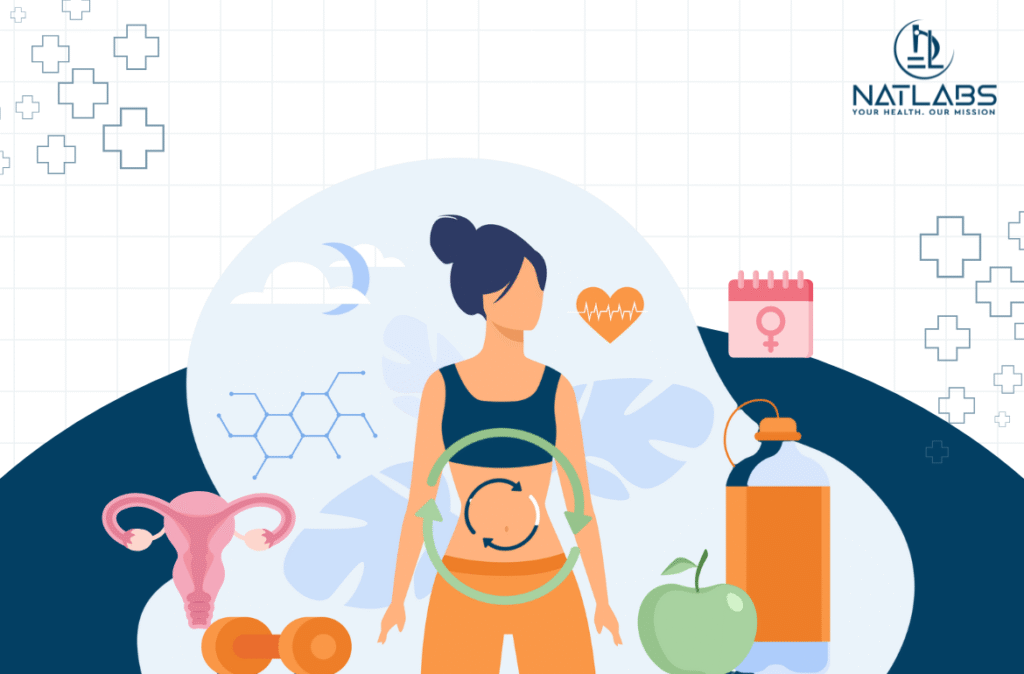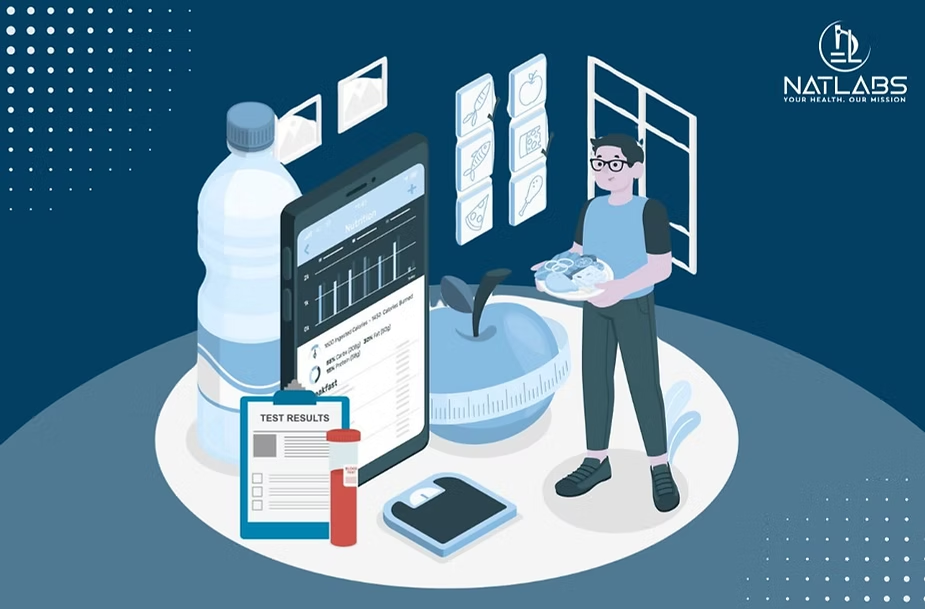
In Indian society, women often prioritise everyone else’s health before their own—caring for children, elderly parents, and spouses whilst neglecting their personal wellbeing. This selfless nature, whilst admirable, can come at a significant cost to women’s health. Understanding which diagnostic tests are essential at each life stage empowers Indian women to take control of their health journey, preventing serious illnesses and maintaining long-term vitality for themselves and their families.
The Foundation Years: Women in Their 20s
The twenties represent a crucial period for establishing healthy habits and creating baseline health records. For young Indian women navigating career beginnings, higher education, or early marriage, health often takes a backseat to other priorities. However, this decade sets the foundation for lifelong wellness.
Essential Screenings for Your Twenties
Annual Well-Woman Examinations form the cornerstone of preventive care. These comprehensive check-ups include physical assessments, lifestyle counselling, and health education tailored to your specific needs and concerns.
Cervical Cancer Screening through Pap smears should begin by age 21 or within three years of becoming sexually active. In India, where cervical cancer remains a leading cause of cancer deaths among women, early screening can be life-saving. HPV vaccination, ideally completed before becoming sexually active, provides additional protection.
Sexual Health Assessments are particularly important for sexually active women. Regular STI screenings help maintain reproductive health and prevent complications that could affect future fertility—a significant concern for many Indian families.
Baseline Health Monitoring through blood pressure checks, blood sugar assessments, and cholesterol screenings establishes your normal ranges. These numbers become invaluable reference points for future health decisions.
Immunisation Updates ensure protection against preventable diseases. Beyond HPV vaccination, keeping up with rubella, hepatitis B, and other recommended vaccines protects both individual and community health.
Building Strength: Women in Their 30s
The thirties often bring increased responsibilities—career advancement, marriage, pregnancy, and child-rearing. These life changes can impact health in various ways, making regular monitoring even more critical.
Key Health Priorities for Your Thirties
Continued Cervical Surveillance adapts to changing guidelines. Many women can transition to combined Pap and HPV testing every five years, though individual risk factors may require more frequent screening.
Breast Health Awareness becomes increasingly important. Whilst routine mammograms typically begin later, women with family history of breast or ovarian cancer may need earlier screening. Monthly breast self-examinations and annual clinical breast exams help detect changes early.
Cardiovascular Health Monitoring takes on greater significance as lifestyle factors begin showing their effects. Regular cholesterol and blood pressure assessments help identify risks before they become problems.
Diabetes Screening is particularly relevant for Indian women, given our genetic predisposition to diabetes. Pregnancy-related glucose intolerance can also indicate future diabetes risk, making regular monitoring essential.
Thyroid Function Assessment addresses the hormonal changes that many women experience during this decade. Thyroid disorders are surprisingly common among Indian women and can affect everything from energy levels to reproductive health.
Navigating Change: Women in Their 40s and 50s
These decades bring significant biological changes, particularly around menopause. Hormonal fluctuations, changing metabolism, and evolving health risks require adapted screening strategies.
Critical Screenings for Midlife
Mammography Programmes become routine, with annual mammograms typically beginning at age 40. For Indian women, who may have different breast density patterns than Western populations, discussing imaging options with healthcare providers ensures optimal screening.
Colorectal Cancer Screening should begin by age 45, with options including stool-based tests or colonoscopy. Given changing dietary patterns and lifestyle factors in urban India, colorectal cancer rates are rising, making screening increasingly important.
Bone Density Assessments evaluate osteoporosis risk, particularly as women approach menopause. Indian women, especially those with vegetarian diets or limited sun exposure, may have higher risks for bone density loss.
Comprehensive Metabolic Monitoring includes regular assessment of blood pressure, cholesterol, blood sugar, and thyroid function. The hormonal changes of perimenopause can affect all these parameters.
Hormonal Evaluations help navigate menopausal symptoms and associated health risks. Understanding your hormonal status enables informed decisions about symptom management and long-term health protection.
Wisdom Years: Women 60 and Beyond
The senior years require adapted screening strategies that focus on maintaining independence, preventing fractures, and managing age-related health changes whilst considering individual life expectancy and quality of life goals.
Essential Assessments for Senior Women
Bone Health Monitoring becomes critical for preventing fractures that could compromise independence. Regular bone density scans guide calcium supplementation, exercise recommendations, and medication decisions when necessary.
Cardiovascular Surveillance adapts to changing risk profiles. Heart disease remains the leading cause of death among older Indian women, making regular monitoring and management essential.
Diabetes and Kidney Function Assessment addresses the increased risks that come with ageing. Regular monitoring helps prevent complications that could significantly impact quality of life.
Sensory Health Evaluations through vision and hearing tests maintain independence and safety. Early detection of age-related changes allows for timely interventions that preserve quality of life.
Ongoing Cancer Surveillance continues as appropriate for individual risk factors and life expectancy, though screening frequency may be adjusted based on overall health status.
The Power of Prevention in Indian Women’s Health
Regular screening offers profound benefits that extend beyond individual health. Early detection of conditions like cervical cancer, breast cancer, or diabetes means simpler treatments, better outcomes, and lower costs—crucial considerations for Indian families where women often manage household budgets and healthcare decisions.
Preventive care helps women maintain their roles as caregivers whilst preserving their own health. A healthy mother, wife, or daughter can better support her family’s needs whilst pursuing her own goals and aspirations.
Creating Your Personal Health Plan
Risk Assessment based on family history, lifestyle factors, and genetic background helps personalise your screening schedule. Indian women may have different risk profiles than global averages for certain conditions.
Healthcare Partnership with providers who understand cultural sensitivities and specific health challenges facing Indian women ensures appropriate, comfortable care.
Documentation and Tracking of health records enables trend monitoring and informed decision-making over time.
Overcoming Barriers to Care
Many Indian women face obstacles to regular health screening—time constraints, family obligations, cultural considerations, or financial concerns. However, the long-term benefits of prevention far outweigh these temporary challenges.
Modern healthcare delivery, including home sample collection services and women-friendly clinic environments, makes regular screening more accessible than ever before. Many diagnostic centres now offer comprehensive women’s health packages that bundle multiple tests efficiently and affordably.
Your Health, Your Choice
Prioritising your health isn’t selfish—it’s necessary. By taking care of yourself, you ensure that you can continue caring for others whilst living your fullest life. Regular, age-appropriate diagnostic tests provide the information you need to make informed health decisions and catch problems early when they’re most treatable.
Every stage of a woman’s life brings unique health considerations and opportunities for prevention. By understanding these needs and acting on them, Indian women can enjoy healthier, more empowered lives whilst serving as positive examples for their daughters and communities.
Quality diagnostic providers like NATLABS understand the unique health challenges and cultural considerations facing Indian women. By offering comprehensive screening packages, comfortable testing environments, and clear result interpretation, they support women in taking control of their health journey at every life stage, ensuring that preventive care fits seamlessly into busy lives whilst providing the highest standards of accuracy and care.
Prioritise your health at every stage of life
NATLABS women’s health packages: +918010000960 | natlabshealthcare.com


